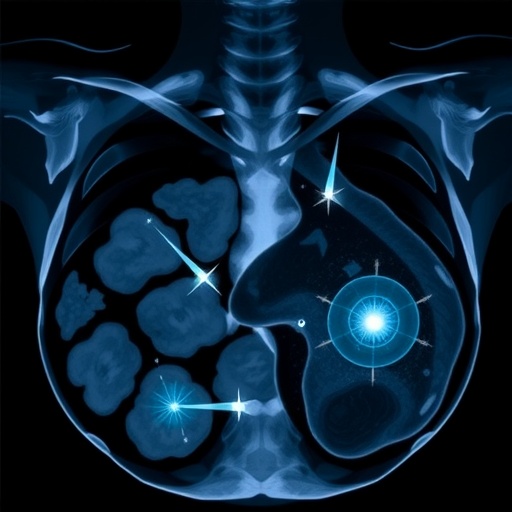A groundbreaking study published in The Lancet has revealed that advanced supplemental imaging techniques can uncover early-stage breast cancers that standard mammography misses in women with dense breast tissue. This pivotal phase 3 randomized controlled trial underscores the enhanced sensitivity of these tools, particularly highlighting the superior performance of contrast mammography and fast MRI compared to ultrasound. The findings could significantly influence breast cancer screening protocols worldwide, especially for populations with denser breast tissues where traditional mammograms have reduced efficacy.
Dense breast tissue, characterized by relatively low fat content and a higher proportion of fibroglandular tissue, presents a substantial challenge in breast cancer diagnostics. Such density can obscure tumors on conventional mammograms due to overlapping tissue shadows, effectively camouflaging malignancies and delaying diagnosis. In women with dense breasts, the risk of breast cancer is markedly elevated—up to four times that of women with fatty breasts—rendering early detection strategies critically important in this subgroup.
The trial enrolled over 9,000 women aged between 50 and 70 years in the UK, all with dense breast tissue and normal mammogram findings. Participants were randomly assigned to receive one of three supplemental imaging modalities: fast MRI, contrast-enhanced mammography, or ultrasound. These women represent a significant demographic—approximately 10% of the UK screening population—who face heightened cancer risk yet receive less benefit from conventional screening.
Cancer detection rates vividly demonstrated the superiority of contrast mammography and fast MRI, with detection rates of 1.9% and 1.7%, respectively. These figures starkly contrast with the 0.4% detection rate observed for ultrasound, an imaging technique previously regarded as a supplementary option but now revealed to be substantially less sensitive. The increased detection capability of MRI and contrast mammography underscores their potential to identify tumors that remain occult on standard mammograms.
Fast MRI, a refined imaging protocol that reduces scan times without compromising resolution, allows for greater throughput and patient comfort, potentially making it more feasible for integration into routine screening. Contrast-enhanced mammography, meanwhile, combines traditional mammographic imaging with iodinated contrast agents to highlight areas of increased vascularity—a hallmark of malignancy—thereby enhancing tumor visualization against dense tissue backgrounds.
Though this study emphasizes remarkable advances in early cancer detection for women with dense breasts, it also raises key questions about the clinical implications of these findings. While early-stage tumors identified by supplemental imaging are likely to be life-saving detections, there remains a need to evaluate the impact of these modalities on mortality rates. Furthermore, concerns about overdiagnosis—detecting cancers that may never progress to clinical significance—warrant careful consideration to avoid unnecessary treatment and psychological distress.
Cost-effectiveness represents another crucial dimension for health systems contemplating the widespread adoption of supplemental imaging. Incorporating additional scans into national screening programs involves logistical challenges and financial implications. Comprehensive analyses balancing the benefits of increased detection with economic sustainability are essential before policy changes can be recommended.
Professor Fiona Gilbert of the University of Cambridge, lead author of the trial, emphasized the global significance of the findings, noting that the results bear relevance not only within the UK but also across all countries offering breast cancer screening. Dense breast tissue is a prevalent characteristic among women worldwide, making optimized detection strategies universally pertinent. The study advocates for tailored screening approaches to address this high-risk group more effectively.
This research also contributes to the ongoing debate regarding personalized medicine in oncology diagnostics. By stratifying screening techniques based on breast density, healthcare providers may enhance early detection rates and improve patient outcomes. Tailored imaging could become a cornerstone of precision screening, integrating patient-specific risk factors with technological innovations.
The randomized controlled design of the trial lends robust scientific credibility to the results. Such trials remain the gold standard for evaluating diagnostic interventions, ensuring that observed differences in detection rates are attributable to the imaging modalities rather than confounding variables. This rigor enhances confidence in the clinical relevance of the findings.
Advanced imaging techniques continue to evolve rapidly, with ongoing enhancements in MRI technology, contrast agents, and image processing algorithms. Integration of artificial intelligence and machine learning algorithms may further augment detection accuracy and reduce interpretation variability, potentially revolutionizing supplemental breast cancer screening in dense breasts.
Despite the promising results, the study’s interim nature implies that long-term outcome data, including breast cancer-specific mortality and quality of life metrics, have yet to be fully evaluated. Future research should focus on these endpoints to determine the ultimate clinical benefit of supplemental imaging, alongside monitoring possible unintended consequences.
In summary, this landmark trial highlights the potential of fast MRI and contrast mammography to substantially improve early breast cancer detection in women with dense breast tissue, a population underserved by traditional mammography. The findings are poised to influence future screening guidelines, encouraging a shift towards more sensitive, individualized imaging strategies that promise to save lives while balancing clinical and economic considerations.
Subject of Research: People
Article Title: Comparison of supplemental breast cancer imaging techniques—interim results from the BRAID randomised controlled trial
News Publication Date: 21-May-2025
Web References: http://dx.doi.org/10.1016/S0140-6736(25)00582-3
References: The Lancet, DOI: 10.1016/S0140-6736(25)00582-3
Keywords: Breast cancer, Cancer, Oncology, Cancer screening, Cancer patients




